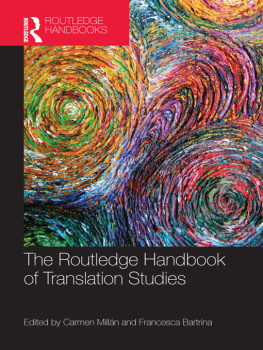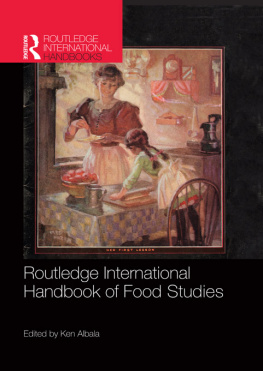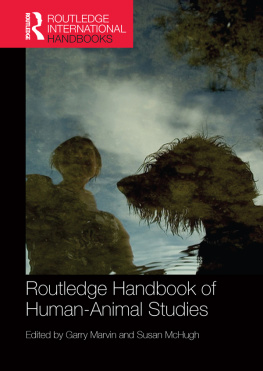
THE ROUTLEDGE INTERNATIONAL HANDBOOK OF C. WRIGHT MILLS STUDIES
The Routledge International Handbook of C. Wright Mills Studies brings together leading scholars of the work of radical sociologist C. Wright Mills to showcase its impact across the social sciences. Showing how Mills thought can be taken up and in some cases, sympathetically reformulated to tackle problems of power and politics, the volume presents an authoritative state-of-the-art overview of Mills groundbreaking ideas and his far-reaching theoretical and methodological impact. Crucially, the volume also illustrates the value of thinking with Mills ideas to address the complexities of contemporary capitalist democracies. As a result, it will appeal to scholars of sociology, anthropology, organization studies, peace and conflict studies, criminology, politics, and public administration.
Jon Frauley is Associate Professor in the Department of Criminology at the University of Ottawa, Canada. He is the author of Criminology, Deviance and the Silver Screen and is editor of and contributor to C. Wright Mills and the Criminological Imagination and (with Frank Pearce) Critical Realism and the Social Sciences.
First published 2021
by Routledge
2 Park Square, Milton Park, Abingdon, Oxon OX14 4RN
and by Routledge
605 Third Avenue, New York, NY 10158
Routledge is an imprint of the Taylor & Francis Group, an informa business
2021 selection and editorial matter, Jon Frauley; individual chapters, the contributors
The right of Jon Frauley to be identified as the author of the editorial material, and of the authors for their individual chapters, has been asserted in accordance with sections 77 and 78 of the Copyright, Designs and Patents Act 1988.
All rights reserved. No part of this book may be reprinted or reproduced or utilised in any form or by any electronic, mechanical, or other means, now known or hereafter invented, including photocopying and recording, or in any information storage or retrieval system, without permission in writing from the publishers.
Trademark notice: Product or corporate names may be trademarks or registered trademarks, and are used only for identification and explanation without intent to infringe.
British Library Cataloguing-in-Publication Data
A catalogue record for this book is available from the British Library
Library of Congress Cataloging-in-Publication Data
Names: Frauley, Jon, 1972- editor.
Title: The Routledge international handbook of C. Wright Mills studies / edited by Jon Frauley.
Description: 1 Edition. | New York, NY : Routledge, 2021. |
Series: Routledge international handbooks | Includes bibliographical references and index.
Identifiers: LCCN 2021013338 (print) | LCCN 2021013339 (ebook) | ISBN 9780367861896 (hardback) | ISBN 9781032074856 (paperback) | ISBN 9781003017585 (ebook)
Subjects: LCSH: Mills, C. Wright (Charles Wright), 1916-1962--Political and social views. | Social sciences--Philosophy. | Democracy--21st century.
Classification: LCC H61.15 .R688 2021 (print) | LCC H61.15 (ebook) | DDC 301.092--dc23
LC record available at https://lccn.loc.gov/2021013338
LC ebook record available at https://lccn.loc.gov/2021013339
ISBN: 978-0-367-86189-6 (hbk)
ISBN: 978-1-032-07485-6 (pbk)
ISBN: 978-1-003-01758-5 (ebk)
DOI: 10.4324/9781003017585
I have tried to be objective. I do not claim to be detached.
C. Wright Mills
Muhammed Asadi, Lecturer, Southern Illinois University-Carbondale (USA)
Nahid Aslanbeigui, Jack T. Kvernland Professor of Philosophy and Corporate Social Policy, Monmouth University (USA)
Carl Boggs, Professor of Social Sciences, National University (USA)
Richard C. Box, Professor Emeritus, School of Public Administration, University of Nebraska, Omaha and Distinguished Research Fellow of Public Affairs, Park University (USA)
John D. Brewer, Professor of Post Conflict Studies, The Senator George J. Mitchell Institute for Global Peace, Security and Justice, Queens University at Belfast (Northern Ireland)
Steven P. Dandaneau, Executive Director, Association for Undergraduate Education at Research Universities and Associate Provost, Colorado State University (USA)
John Eldridge, Professor Emeritus of Sociology, University of Glasgow (Scotland)
Frank Elwell, Professor of Sociology, Rogers State University (USA)
Jon Frauley, Associate Professor of Criminology, University of Ottawa (Canada)
James E. Freeman, Professor of Political Science and Chair of Humanities (Retired), Essex County College; Adjunct Professor of Politics and Sociology, College of Mount Saint Vincent and New York University (USA)
Michael Hviid Jacobsen, Professor of Sociology, Aalborg University (Denmark)
Lauren Langman, Professor of Sociology, Loyola University of Chicago (USA)
Guy Oakes, Professor Emeritus of Philosophy, Monmouth University (USA)
Joseph Peschek, Professor of Political Science, Hamline University (USA)
Bernard Phillips, Professor Emeritus of Sociology, Boston University (USA)
Stephen Pfohl, Professor of Sociology, Boston College (USA)
Avery Schatz, Junior Scholar, Loyola University of Chicago (USA)
Joseph Scimecca, Professor of Sociology, George Mason University (USA)
A. Javier Trevio, Professor of Sociology, Wheaton College (USA)
The initial objective of this anthology was two-fold: to chart the impact of C. Wright Mills work beyond his home discipline of sociology and to argue for something akin to Mills Studies as an area of enquiry. Even though Mills Studies is not a formalized area, it seems fitting that there be something akin to this as it is standard for there to be an area and even a journal devoted to major thinkers. We might justifiably say that C. Wright Mills Studies, although not formalized, was inaugurated by critics of Mills, those who read his work appreciably, those who adopted his ideas and applied them, those who worked on refining and extending his concepts, and by those who were deeply impacted by him and his work and incorporated this into their scholarly and daily life.
The 1964 anthology, The New Sociology: Essays in Social Science and Social Theory in Honor of C. Wright Mills, edited by Irving Horowitz, subsequent anthologies and special issues of various journals, and various books and journal articles that have appeared since that time all of which offer valuable engagements will Mills ideas or which employ them have helped to contribute to something approaching Mills Studies. Yet, there is a need to bring this work together so that it might be reviewed, discussed, and debated in a systematic and critical way. Mills ideas and approach continue to impact scholars working in different disciplines and subfields but, owing to fragmentation across the social sciences and humanities, they might not be aware of one anothers contributions. As the contributors to this volume show, the potential of Mills political sociology and methodology have not been exhausted or duly exploited. There are currents within his work that need to be teased out, reformulated, and extended and, importantly, made use of in understanding and explaining todays pressing societal problems, which in turn can aid in formulating strategies of change. Bringing the latest on Mills together in this volume will help, we hope, to enable an intertextual reading of his and his interlocutors works and initiate a re-examination of his many ideas and insights. This aim is in keeping with Mills own injunction in the appendix to






